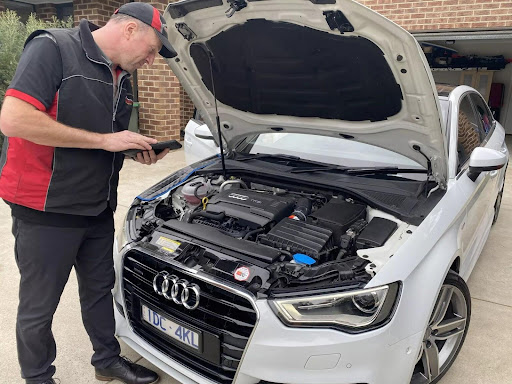Buying a used car in Australia can be a smart choice, offering affordability and a wide range of options. However, regulations for used car purchases vary by state, particularly regarding warranties (like those in Victoria). To ensure a safe and legal purchase, understanding these laws and doing your due diligence is crucial.
Read also: 17 Questions to Ask When Buying A Used Car
Choosing Between Dealerships and Private Sellers
Buying from dealerships might come at a heftier price because of overheads, however, these vehicles often come with guarantees and warranties. This is because dealerships, generally being reliable sources, inspect their cars thoroughly before introducing them to the used car market.
On the other hand, private sellers might offer cars at a reduced price since it’s a more personal transaction and the price tends to be negotiable, plus they do not incur the same costs in order to sell the vehicles, no warranties and no on-road costs/government charges included.
But have you ever thought about the risk? These deals often lack guarantees or warranties, making it crucial for you to carry out a comprehensive check before finalising your decision.
State Specific Warranty Rules: Victoria (VIC)
Did you know each state in Australia has distinct car warranty regulations? A universal rule is that these only apply to purchases made through car dealerships. For those considering a
purchase in Victoria (VIC), licensed motor car traders have specific obligations. Ever thought about the exact coverage you get? If a car is less than 10 years old and has travelled less than 160,000 kilometres, a statutory warranty is provided. This warranty lasts either for three months or 5,000 kilometres after purchase, whichever comes first.
Read also: Understanding Used car warranty in Victoria
What does this mean for you? If any faults arise during the warranty period, it becomes the trader’s responsibility to ensure the car maintains a reasonable condition for its age. It’s worth noting that if you’re considering buying from a private seller, there’s no legal entitlement to a car warranty in Victoria.
If you are planning to buy a used car from a private seller in Victoria, there are several requirements you need to be aware of to ensure that you are making a safe and legal purchase. safe and legal purchase. Here are some key points to keep in mind:
Vehicle Transfer form
When purchasing a car from a private seller, you must lodge a vehicle transfer form with VicRoads. This form facilitates the transfer of the vehicle’s registration from the seller to the buyer.
Roadworthy Certificate
Similarly, when buying a car from a private seller, you must also submit a roadworthy certificate to VicRoads. This certificate confirms that the vehicle is safe for road use.
Duty and Transfer Fees
VicRoads requires the payment of duty and transfer fees when acquiring a car from a private seller. These fees are determined based on the vehicle’s market value.
Inspection and Check
You can enlist a registered mechanic to inspect the vehicle. Additionally, you can conduct online inquiries about the vehicle’s status through the Personal Property Securities Register. This register offers details, such as any outstanding debts on the vehicle and whether it has been previously reported as written off or stolen.
Seller’s Identity Details
When purchasing a car from a private seller, you should ask for evidence of the seller’s identity, such as their Victorian driving licence. This will help ensure that you are dealing with the rightful owner of the vehicle.
On that note, you also need to see the VicRoads registration papers to see whose name the car is actually under. It’s worth noting that some individuals have sold cars they do not legally own, which may also belong to family members overseas. If the registration papers, transfer form details, or license information do not align, exercise caution.
Number Plates Check
You should also check the number plates of the vehicle to ensure that they match the registration papers. This will help ensure that the vehicle is not stolen. This is easily done for $2 at www.ppsr.gov.au
Receipt of Sales
If the vehicle is unregistered, ensure you obtain a valid receipt of sale from the seller. This receipt should include the seller’s name, address, and all vehicle identification details. However, in the case of an unregistered vehicle, you have limited options for driving it away.
Transportation alternatives include using a trailer or truck, getting a temporary “unregistered vehicle permit,” or using a trade plate for motor vehicle trades. With this permission, you are able to drive for roadworthy, registration, or repair purposes.
Conclusion
Buying a used car in Victoria opens doors to affordability and a wide selection of vehicles. However, to ensure a safe and legal purchase, keep these requirements in mind when buying a used car from a private seller in Victoria to guarantee a safe and legal purchase. Additionally, consider a pre-purchase inspection to thoroughly assess the car’s history and condition. Don’t hesitate to ask questions.

If you’re thinking of buying a used vehicle in Melbourne, you must go and get a PRE PURCHASE CAR INSPECTION first to ensure your next vehicle are safe and reliable. You can use these to negotiate the price but more importantly, you can have the peace of mind of any repairs that may be required.

